- Date & Time: Wednesday, April 10, 2024; 12:00 PM
Speaker: Na Li, Harvard University
MERL Host: Yebin Wang
Research Areas: Control, Dynamical Systems, Machine Learning
Abstract 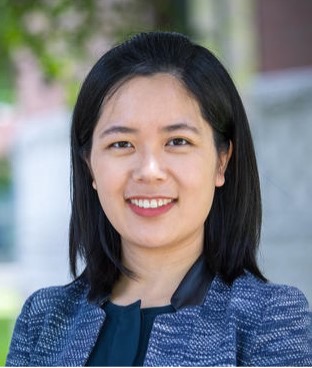 The explosive growth of machine learning and data-driven methodologies have revolutionized numerous fields. Yet, translating these successes to the domain of dynamical, physical systems remains a significant challenge, hindered by the complex and often unpredictable nature of such environments. Closing the loop from data to actions in these systems faces many difficulties, stemming from the need for sample efficiency and computational feasibility amidst intricate dynamics, along with many other requirements such as verifiability, robustness, and safety. In this talk, we bridge this gap by introducing innovative approaches that harness representation-based methods, domain knowledge, and the physical structures of systems. We present a comprehensive framework that integrates these components to develop reinforcement learning and control strategies that are not only tailored for the complexities of physical systems but also achieve efficiency, safety, and robustness with provable performance.
The explosive growth of machine learning and data-driven methodologies have revolutionized numerous fields. Yet, translating these successes to the domain of dynamical, physical systems remains a significant challenge, hindered by the complex and often unpredictable nature of such environments. Closing the loop from data to actions in these systems faces many difficulties, stemming from the need for sample efficiency and computational feasibility amidst intricate dynamics, along with many other requirements such as verifiability, robustness, and safety. In this talk, we bridge this gap by introducing innovative approaches that harness representation-based methods, domain knowledge, and the physical structures of systems. We present a comprehensive framework that integrates these components to develop reinforcement learning and control strategies that are not only tailored for the complexities of physical systems but also achieve efficiency, safety, and robustness with provable performance.
-
- Date & Time: Wednesday, April 3, 2024; 12:00 PM
Speaker: Fadel Adib, MIT & Cartesian
MERL Host: Wael Hajj Ali
Research Areas: Computational Sensing, Dynamical Systems, Signal Processing
Abstract 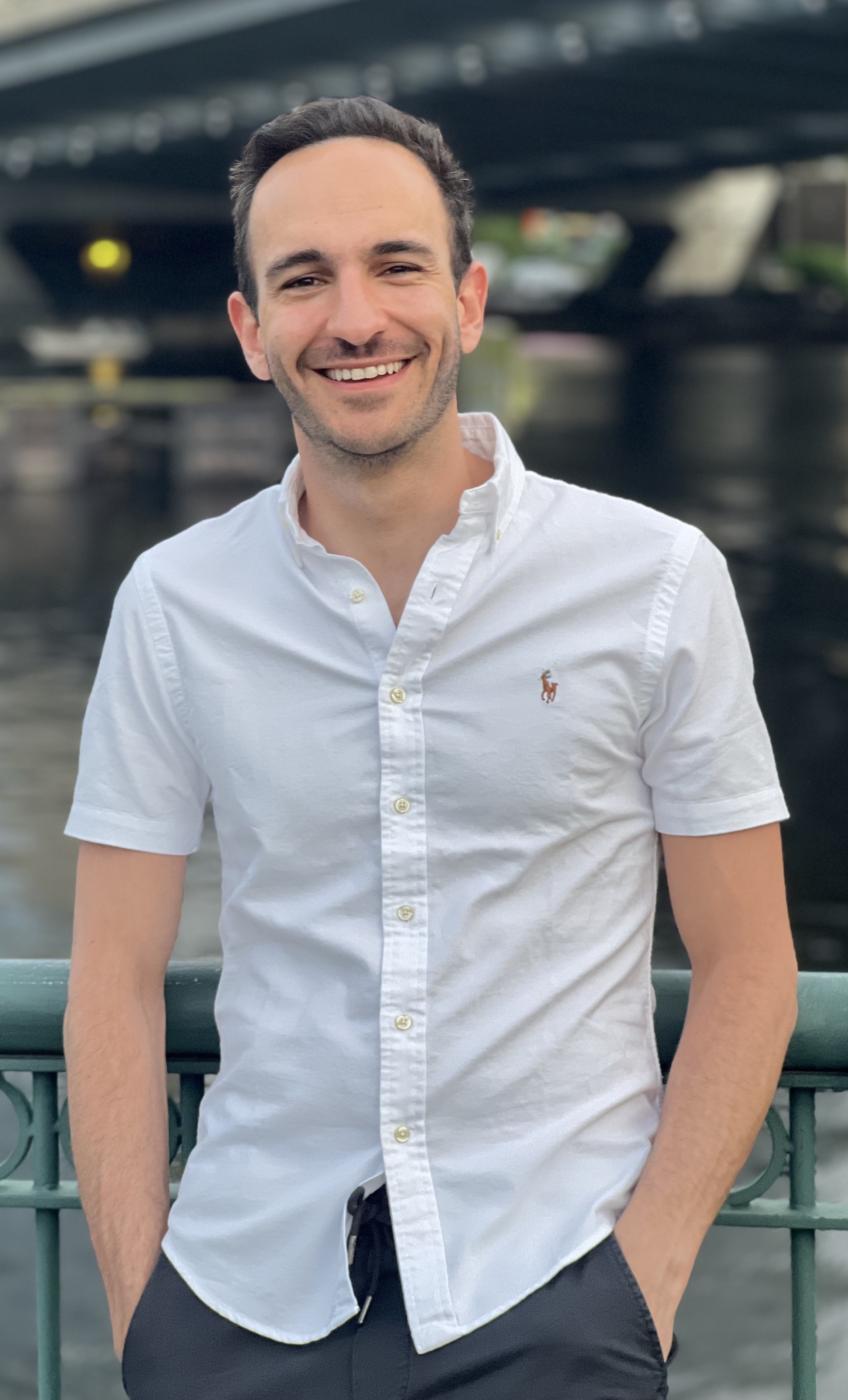 This talk will cover a new generation of technologies that can sense, connect, and perceive the physical world in unprecedented ways. These technologies can uncover hidden worlds around us, promising transformative impact on areas spanning climate change monitoring, ocean mapping, healthcare, food security, supply chain, and even extraterrestrial exploration.
This talk will cover a new generation of technologies that can sense, connect, and perceive the physical world in unprecedented ways. These technologies can uncover hidden worlds around us, promising transformative impact on areas spanning climate change monitoring, ocean mapping, healthcare, food security, supply chain, and even extraterrestrial exploration.
The talk will cover four core technologies invented by Prof. Adib and his team. The first is an ocean internet-of-things (IoT) that uses battery-free sensors for climate change monitoring, marine life discovery, and seafood production (aquaculture). The second is a new perception technology that enables robots to sense and manipulate hidden objects. The third is a new augmented reality headset with ``X-ray vision”, which extends human perception beyond line-of-sight. The fourth is a wireless sensing technology that can “see through walls” and monitor people’s vital signs (including their breathing, heart rate, and emotions), enabling smart environments that sense humans requiring any contact with the human body.
The talk will touch on the journey of these technologies from their inception at MIT to international collaborations and startups that are translating them to real-world impact in areas spanning healthcare, climate change, and supply chain.
-
- Date: December 9, 2024 - December 15, 2024
Where: NeurIPS 2024
MERL Contact: Devesh K. Jha
Research Areas: Artificial Intelligence, Machine Learning
Brief - Devesh Jha, a Principal Research Scientist in the Optimization & Intelligent Robtics team, has been appointed as an area chair for Conference on Neural Information Processing Systems (NeurIPS) 2024. NeurIPS is the premier Machine Learning (ML) and Artificial Intelligence (AI) conference that includes invited talks, demonstrations, symposia, and oral and poster presentations of refereed papers.
-
- Date: March 20, 2024
Where: Austin, TX
MERL Contact: Ankush Chakrabarty
Research Areas: Artificial Intelligence, Control, Data Analytics, Dynamical Systems, Machine Learning, Multi-Physical Modeling, Optimization
Brief - Ankush Chakrabarty, Principal Research Scientist in the Multiphysical Systems Team, was invited to speak as a guest lecturer in the seminar series on "Occupant-Centric Grid Interactive Buildings" in the Department of Civil, Architectural and Environmental Engineering (CAEE) at the University of Texas at Austin.
The talk, entitled "Deep Generative Networks and Fine-Tuning for Net-Zero Energy Buildings" described lessons learned from MERL's recent research on generative models for building simulation and control, along with meta-learning for on-the-fly fine-tuning to adapt and optimize energy expenditure.
-
- Date & Time: Wednesday, March 20, 2024; 1:00 PM
Speaker: Sanmi Koyejo, Stanford University
MERL Host: Jing Liu
Research Areas: Artificial Intelligence, Machine Learning
Abstract 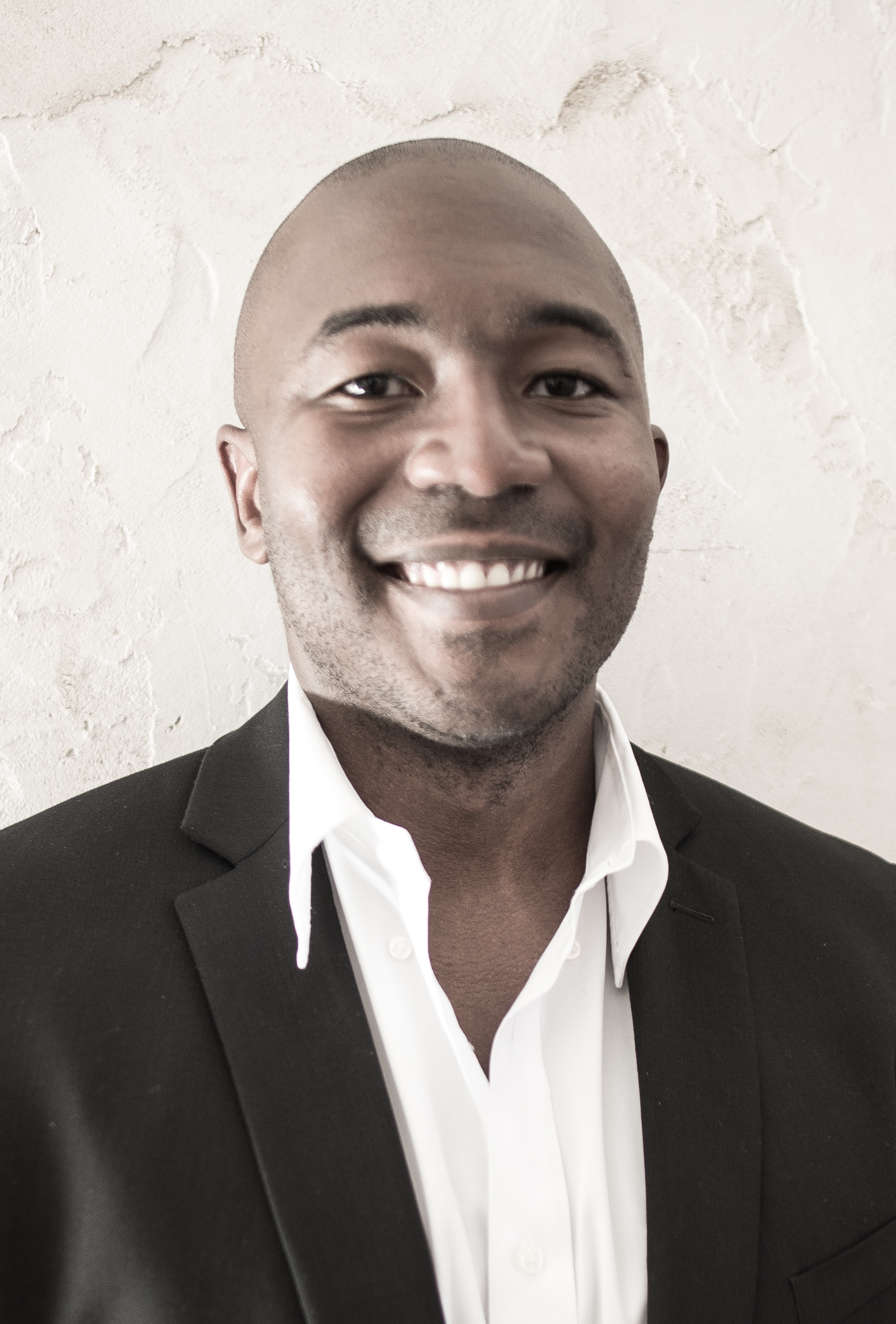 Recent work claims that large language models display emergent abilities, abilities not present in smaller-scale models that are present in larger-scale models. What makes emergent abilities intriguing is two-fold: their sharpness, transitioning seemingly instantaneously from not present to present, and their unpredictability, appearing at seemingly unforeseeable model scales. Here, we present an alternative explanation for emergent abilities: that for a particular task and model family, when analyzing fixed model outputs, emergent abilities appear due to the researcher's choice of metric rather than due to fundamental changes in model behavior with scale. Specifically, nonlinear or discontinuous metrics produce apparent emergent abilities, whereas linear or continuous metrics produce smooth, continuous predictable changes in model performance. We present our alternative explanation in a simple mathematical model. Via the presented analyses, we provide evidence that alleged emergent abilities evaporate with different metrics or with better statistics, and may not be a fundamental property of scaling AI models.
Recent work claims that large language models display emergent abilities, abilities not present in smaller-scale models that are present in larger-scale models. What makes emergent abilities intriguing is two-fold: their sharpness, transitioning seemingly instantaneously from not present to present, and their unpredictability, appearing at seemingly unforeseeable model scales. Here, we present an alternative explanation for emergent abilities: that for a particular task and model family, when analyzing fixed model outputs, emergent abilities appear due to the researcher's choice of metric rather than due to fundamental changes in model behavior with scale. Specifically, nonlinear or discontinuous metrics produce apparent emergent abilities, whereas linear or continuous metrics produce smooth, continuous predictable changes in model performance. We present our alternative explanation in a simple mathematical model. Via the presented analyses, we provide evidence that alleged emergent abilities evaporate with different metrics or with better statistics, and may not be a fundamental property of scaling AI models.
-
- Date: Sunday, April 14, 2024 - Friday, April 19, 2024
Location: Seoul, South Korea
MERL Contacts: Petros T. Boufounos; François Germain; Chiori Hori; Sameer Khurana; Toshiaki Koike-Akino; Jonathan Le Roux; Hassan Mansour; Zexu Pan; Kieran Parsons; Joshua Rapp; Anthony Vetro; Pu (Perry) Wang; Gordon Wichern; Ryoma Yataka
Research Areas: Artificial Intelligence, Computational Sensing, Machine Learning, Robotics, Signal Processing, Speech & Audio
Brief - MERL has made numerous contributions to both the organization and technical program of ICASSP 2024, which is being held in Seoul, Korea from April 14-19, 2024.
Sponsorship and Awards
MERL is proud to be a Bronze Patron of the conference and will participate in the student job fair on Thursday, April 18. Please join this session to learn more about employment opportunities at MERL, including openings for research scientists, post-docs, and interns.
MERL is pleased to be the sponsor of two IEEE Awards that will be presented at the conference. We congratulate Prof. Stéphane G. Mallat, the recipient of the 2024 IEEE Fourier Award for Signal Processing, and Prof. Keiichi Tokuda, the recipient of the 2024 IEEE James L. Flanagan Speech and Audio Processing Award.
Jonathan Le Roux, MERL Speech and Audio Senior Team Leader, will also be recognized during the Awards Ceremony for his recent elevation to IEEE Fellow.
Technical Program
MERL will present 13 papers in the main conference on a wide range of topics including automated audio captioning, speech separation, audio generative models, speech and sound synthesis, spatial audio reproduction, multimodal indoor monitoring, radar imaging, depth estimation, physics-informed machine learning, and integrated sensing and communications (ISAC). Three workshop papers have also been accepted for presentation on audio-visual speaker diarization, music source separation, and music generative models.
Perry Wang is the co-organizer of the Workshop on Signal Processing and Machine Learning Advances in Automotive Radars (SPLAR), held on Sunday, April 14. It features keynote talks from leaders in both academia and industry, peer-reviewed workshop papers, and lightning talks from ICASSP regular tracks on signal processing and machine learning for automotive radar and, more generally, radar perception.
Gordon Wichern will present an invited keynote talk on analyzing and interpreting audio deep learning models at the Workshop on Explainable Machine Learning for Speech and Audio (XAI-SA), held on Monday, April 15. He will also appear in a panel discussion on interpretable audio AI at the workshop.
Perry Wang also co-organizes a two-part special session on Next-Generation Wi-Fi Sensing (SS-L9 and SS-L13) which will be held on Thursday afternoon, April 18. The special session includes papers on PHY-layer oriented signal processing and data-driven deep learning advances, and supports upcoming 802.11bf WLAN Sensing Standardization activities.
Petros Boufounos is participating as a mentor in ICASSP’s Micro-Mentoring Experience Program (MiME).
About ICASSP
ICASSP is the flagship conference of the IEEE Signal Processing Society, and the world's largest and most comprehensive technical conference focused on the research advances and latest technological development in signal and information processing. The event attracts more than 3000 participants.
-
- Date & Time: Friday, March 8, 2024; 1:00 PM
Speaker: Stefanos Nikolaidis, University of Southern California
MERL Host: Siddarth Jain
Research Areas: Machine Learning, Robotics, Human-Computer Interaction
Abstract 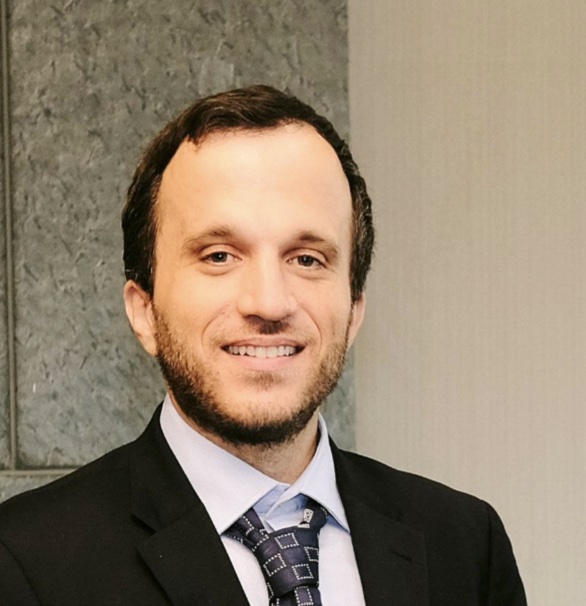 While robots have been successfully deployed in factory floors and warehouses, there has been limited progress in having them perform physical tasks with people at home and in the workplace. I aim to bridge the gap between their current performance in human environments and what robots are capable of doing, by making human-robot interactions efficient and robust.
While robots have been successfully deployed in factory floors and warehouses, there has been limited progress in having them perform physical tasks with people at home and in the workplace. I aim to bridge the gap between their current performance in human environments and what robots are capable of doing, by making human-robot interactions efficient and robust.
In the first part of my talk, I discuss enhancing the efficiency of human-robot interactions by enabling robot manipulators to infer the preference of a human teammate and proactively assist them in a collaborative task. I show how we can leverage similarities between different users and tasks to learn compact representations of user preferences and use these representations as priors for efficient inference.
In the second part, I talk about enhancing the robustness of human-robot interactions by algorithmically generating diverse and realistic scenarios in simulation that reveal system failures. I propose formulating the problem of algorithmic scenario generation as a quality diversity problem and show how standard quality diversity algorithms can discover surprising and unexpected failure cases. I then discuss the development of a new class of quality diversity algorithms that significantly improve the search of the scenario space and the integration of these algorithms with generative models, which enables the generation of complex and realistic scenarios.
Finally, I conclude the talk with applications in mining operations, collaborative manufacturing and assistive care.
-
- Date: January 1, 2024
Awarded to: Jonathan Le Roux
MERL Contact: Jonathan Le Roux
Research Areas: Artificial Intelligence, Machine Learning, Speech & Audio
Brief - MERL Distinguished Scientist and Speech & Audio Senior Team Leader Jonathan Le Roux has been elevated to IEEE Fellow, effective January 2024, "for contributions to multi-source speech and audio processing."
Mitsubishi Electric celebrated Dr. Le Roux's elevation and that of another researcher from the company, Dr. Shumpei Kameyama, with a worldwide news release on February 15.
Dr. Jonathan Le Roux has made fundamental contributions to the field of multi-speaker speech processing, especially to the areas of speech separation and multi-speaker end-to-end automatic speech recognition (ASR). His contributions constituted a major advance in realizing a practically usable solution to the cocktail party problem, enabling machines to replicate humans’ ability to concentrate on a specific sound source, such as a certain speaker within a complex acoustic scene—a long-standing challenge in the speech signal processing community. Additionally, he has made key contributions to the measures used for training and evaluating audio source separation methods, developing several new objective functions to improve the training of deep neural networks for speech enhancement, and analyzing the impact of metrics used to evaluate the signal reconstruction quality. Dr. Le Roux’s technical contributions have been crucial in promoting the widespread adoption of multi-speaker separation and end-to-end ASR technologies across various applications, including smart speakers, teleconferencing systems, hearables, and mobile devices.
IEEE Fellow is the highest grade of membership of the IEEE. It honors members with an outstanding record of technical achievements, contributing importantly to the advancement or application of engineering, science and technology, and bringing significant value to society. Each year, following a rigorous evaluation procedure, the IEEE Fellow Committee recommends a select group of recipients for elevation to IEEE Fellow. Less than 0.1% of voting members are selected annually for this member grade elevation.
-
- Date & Time: Tuesday, February 13, 2024; 1:00 PM
Speaker: Melanie Mitchell, Santa Fe Institute
MERL Host: Suhas Lohit
Research Areas: Artificial Intelligence, Computer Vision, Machine Learning, Human-Computer Interaction
Abstract 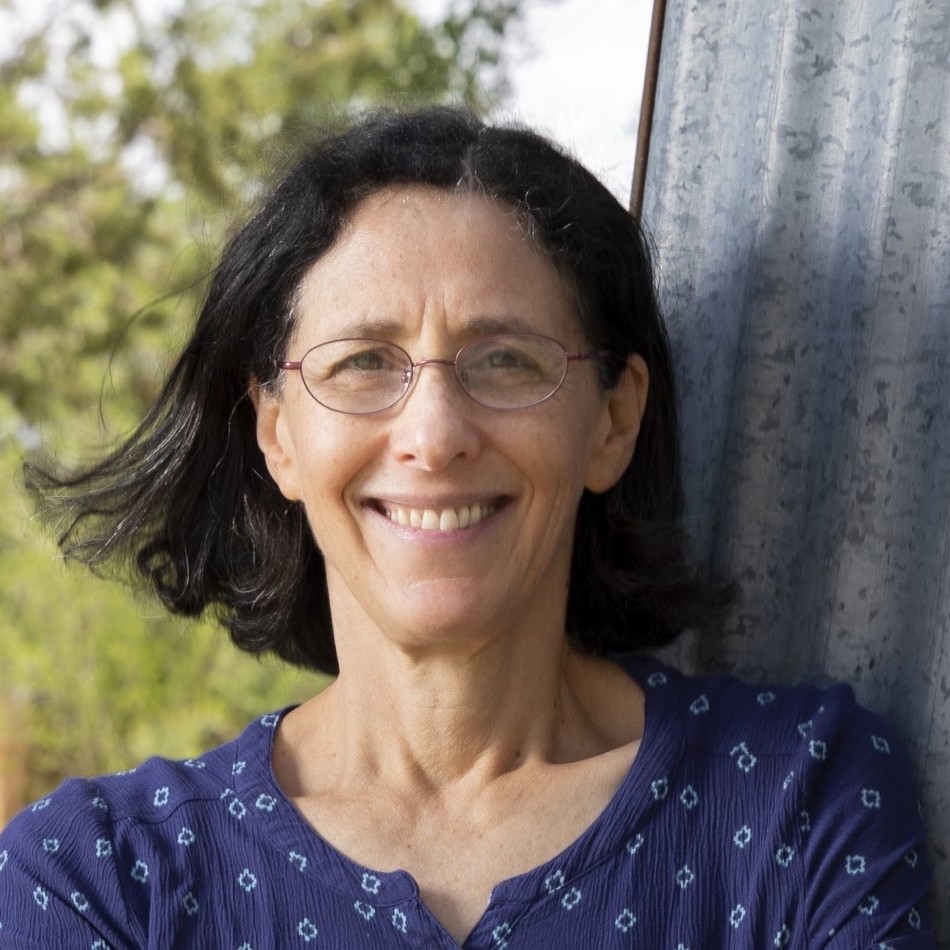 I will survey a current, heated debate in the AI research community on whether large pre-trained language models can be said to "understand" language -- and the physical and social situations language encodes -- in any important sense. I will describe arguments that have been made for and against such understanding, and, more generally, will discuss what methods can be used to fairly evaluate understanding and intelligence in AI systems. I will conclude with key questions for the broader sciences of intelligence that have arisen in light of these discussions.
I will survey a current, heated debate in the AI research community on whether large pre-trained language models can be said to "understand" language -- and the physical and social situations language encodes -- in any important sense. I will describe arguments that have been made for and against such understanding, and, more generally, will discuss what methods can be used to fairly evaluate understanding and intelligence in AI systems. I will conclude with key questions for the broader sciences of intelligence that have arisen in light of these discussions.
-
- Date & Time: Wednesday, January 31, 2024; 12:00 PM
Speaker: Greta Tuckute, MIT
MERL Host: Sameer Khurana
Research Areas: Artificial Intelligence, Machine Learning, Speech & Audio
Abstract 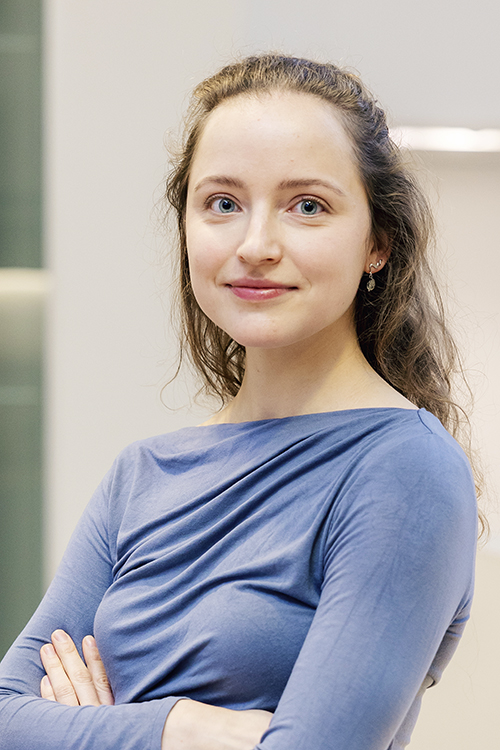 Advances in machine learning have led to powerful models for audio and language, proficient in tasks like speech recognition and fluent language generation. Beyond their immense utility in engineering applications, these models offer valuable tools for cognitive science and neuroscience. In this talk, I will demonstrate how these artificial neural network models can be used to understand how the human brain processes language. The first part of the talk will cover how audio neural networks serve as computational accounts for brain activity in the auditory cortex. The second part will focus on the use of large language models, such as those in the GPT family, to non-invasively control brain activity in the human language system.
Advances in machine learning have led to powerful models for audio and language, proficient in tasks like speech recognition and fluent language generation. Beyond their immense utility in engineering applications, these models offer valuable tools for cognitive science and neuroscience. In this talk, I will demonstrate how these artificial neural network models can be used to understand how the human brain processes language. The first part of the talk will cover how audio neural networks serve as computational accounts for brain activity in the auditory cortex. The second part will focus on the use of large language models, such as those in the GPT family, to non-invasively control brain activity in the human language system.
-
- Date: December 15, 2023
Awarded to: Lingfeng Sun, Devesh K. Jha, Chiori Hori, Siddharth Jain, Radu Corcodel, Xinghao Zhu, Masayoshi Tomizuka and Diego Romeres
MERL Contacts: Radu Corcodel; Chiori Hori; Siddarth Jain; Devesh K. Jha; Diego Romeres
Research Areas: Artificial Intelligence, Machine Learning, Robotics
Brief - MERL Researchers received an "Honorable Mention award" at the Workshop on Instruction Tuning and Instruction Following at the NeurIPS 2023 conference in New Orleans. The workshop was on the topic of instruction tuning and Instruction following for Large Language Models (LLMs). MERL researchers presented their work on interactive planning using LLMs for partially observable robotic tasks during the oral presentation session at the workshop.
-
- Date: December 16, 2023
Awarded to: Zexu Pan, Gordon Wichern, Yoshiki Masuyama, Francois Germain, Sameer Khurana, Chiori Hori, and Jonathan Le Roux
MERL Contacts: François Germain; Chiori Hori; Sameer Khurana; Jonathan Le Roux; Zexu Pan; Gordon Wichern
Research Areas: Artificial Intelligence, Machine Learning, Speech & Audio
Brief - MERL's Speech & Audio team ranked 1st out of 12 teams in the 2nd COG-MHEAR Audio-Visual Speech Enhancement Challenge (AVSE). The team was led by Zexu Pan, and also included Gordon Wichern, Yoshiki Masuyama, Francois Germain, Sameer Khurana, Chiori Hori, and Jonathan Le Roux.
The AVSE challenge aims to design better speech enhancement systems by harnessing the visual aspects of speech (such as lip movements and gestures) in a manner similar to the brain’s multi-modal integration strategies. MERL’s system was a scenario-aware audio-visual TF-GridNet, that incorporates the face recording of a target speaker as a conditioning factor and also recognizes whether the predominant interference signal is speech or background noise. In addition to outperforming all competing systems in terms of objective metrics by a wide margin, in a listening test, MERL’s model achieved the best overall word intelligibility score of 84.54%, compared to 57.56% for the baseline and 80.41% for the next best team. The Fisher’s least significant difference (LSD) was 2.14%, indicating that our model offered statistically significant speech intelligibility improvements compared to all other systems.
-
- Date: December 7, 2023
MERL Contact: Karl Berntorp
Research Areas: Control, Dynamical Systems
Brief - Karl Berntorp has joined the Editorial Board of the IEEE Transactions on Control Systems Technology (T-CST) as an Associate Editor. The IEEE T-CST publishes peer-reviewed papers on technological advances in the design, realization, and operation of control systems, and bridges the gap between the theory and practice of control engineering.
-
- Date & Time: Tuesday, November 28, 2023; 12:00 PM
Speaker: Kristina Monakhova, MIT and Cornell
MERL Host: Joshua Rapp
Research Areas: Computational Sensing, Computer Vision, Machine Learning, Signal Processing
Abstract 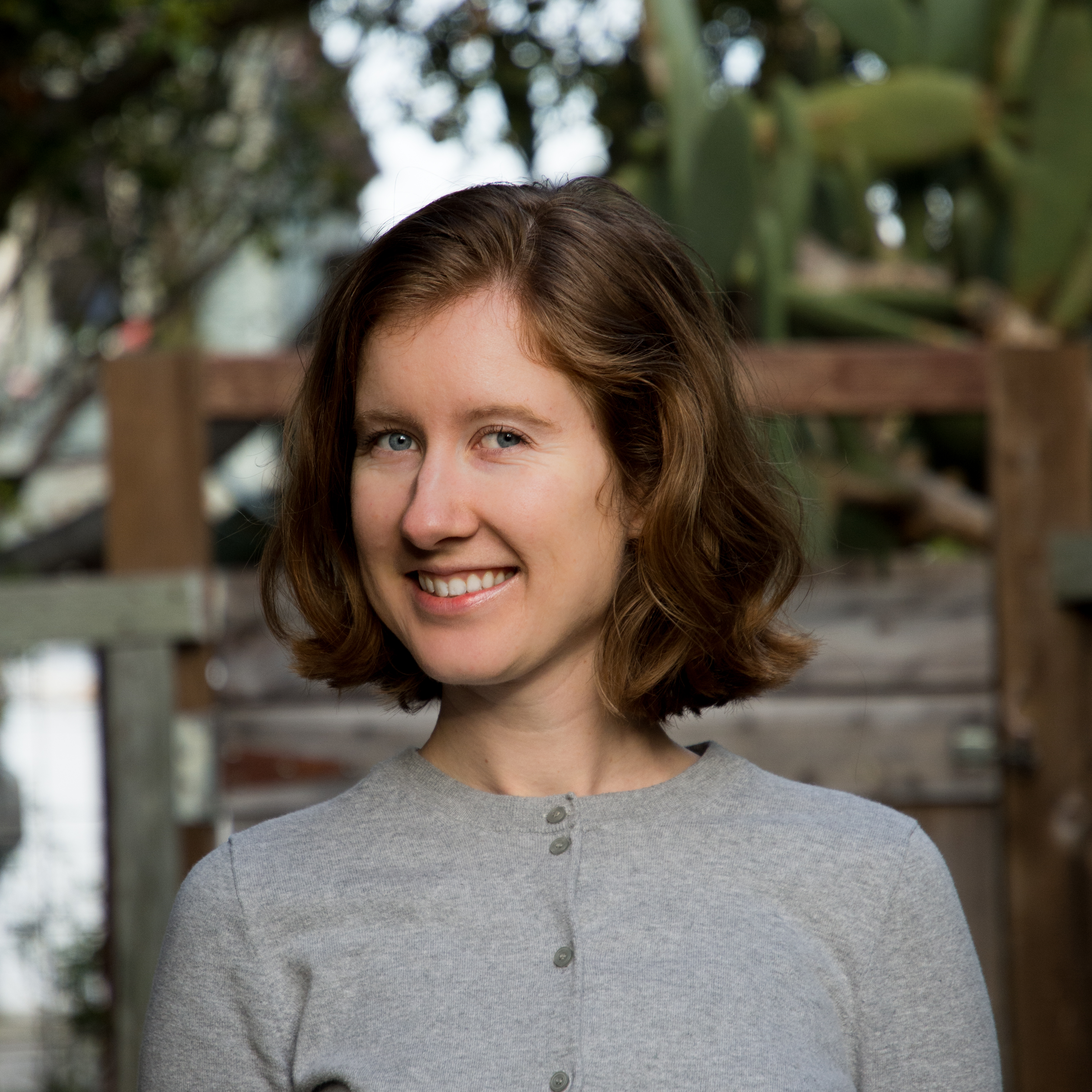 Imaging in low light settings is extremely challenging due to low photon counts, both in photography and in microscopy. In photography, imaging under low light, high gain settings often results in highly structured, non-Gaussian sensor noise that’s hard to characterize or denoise. In this talk, we address this by developing a GAN-tuned physics-based noise model to more accurately represent camera noise at the lowest light, and highest gain settings. Using this noise model, we train a video denoiser using synthetic data and demonstrate photorealistic videography at starlight (submillilux levels of illumination) for the first time.
Imaging in low light settings is extremely challenging due to low photon counts, both in photography and in microscopy. In photography, imaging under low light, high gain settings often results in highly structured, non-Gaussian sensor noise that’s hard to characterize or denoise. In this talk, we address this by developing a GAN-tuned physics-based noise model to more accurately represent camera noise at the lowest light, and highest gain settings. Using this noise model, we train a video denoiser using synthetic data and demonstrate photorealistic videography at starlight (submillilux levels of illumination) for the first time.
For multiphoton microscopy, which is a form a scanning microscopy, there’s a trade-off between field of view, phototoxicity, acquisition time, and image quality, often resulting in noisy measurements. While deep learning-based methods have shown compelling denoising performance, can we trust these methods enough for critical scientific and medical applications? In the second part of this talk, I’ll introduce a learned, distribution-free uncertainty quantification technique that can both denoise and predict pixel-wise uncertainty to gauge how much we can trust our denoiser’s performance. Furthermore, we propose to leverage this learned, pixel-wise uncertainty to drive an adaptive acquisition technique that rescans only the most uncertain regions of a sample. With our sample and algorithm-informed adaptive acquisition, we demonstrate a 120X improvement in total scanning time and total light dose for multiphoton microscopy, while successfully recovering fine structures within the sample.
-
- Date: November 14, 2023
Where: Istanbul, Turkey
MERL Contact: Ankush Chakrabarty
Research Areas: Control, Data Analytics, Machine Learning, Multi-Physical Modeling, Optimization
Brief - Ankush Chakrabarty, Principal Research Scientist in the Multiphysical Systems team at MERL, served as Co-Chair at the 3rd ACM International Workshop on Big Data and Machine Learning for Smart Buildings and Cities (BALANCES'23). The workshop places spotlights on two different IEA EBC Annexes: the Annex 81 - Data-Driven Smart Buildings and Annex 82 - Energy Flexible Buildings Towards Resilient Low Carbon Energy Systems.
-
- Date: November 28, 2023 - November 30, 2023
Where: Virtual
MERL Contacts: Toshiaki Koike-Akino; Pu (Perry) Wang
Research Areas: Artificial Intelligence, Communications, Computational Sensing, Machine Learning, Signal Processing
Brief - On November 28, 2023, MERL researchers Toshiaki Koike-Akino and Pu (Perry) Wang will give a 3-hour tutorial presentation at the first IEEE Virtual Conference on Communications (VCC). The talk, titled "Post-Deep Learning Era: Emerging Quantum Machine Learning for Sensing and Communications," addresses recent trends, challenges, and advances in sensing and communications. P. Wang presents use cases, industry trends, signal processing, and deep learning for Wi-Fi integrated sensing and communications (ISAC), while T. Koike-Akino discusses the future of deep learning, giving a comprehensive overview of artificial intelligence (AI) technologies, natural computing, emerging quantum AI, and their diverse applications. The tutorial is conducted virtually.
IEEE VCC is a new fully virtual conference launched from the IEEE Communications Society, gathering researchers from academia and industry who are unable to travel but wish to present their recent scientific results and engage in conducive interactive discussions with fellow researchers working in their fields. It is designed to resolve potential hardship such as pandemic restrictions, visa issues, travel problems, or financial difficulties.
-
- Date & Time: Tuesday, November 21, 2023; 11:00 AM
Speaker: Gioele Zardini, ETH Zürich and MIT
MERL Host: Karl Berntorp
Research Areas: Control, Dynamical Systems
Abstract 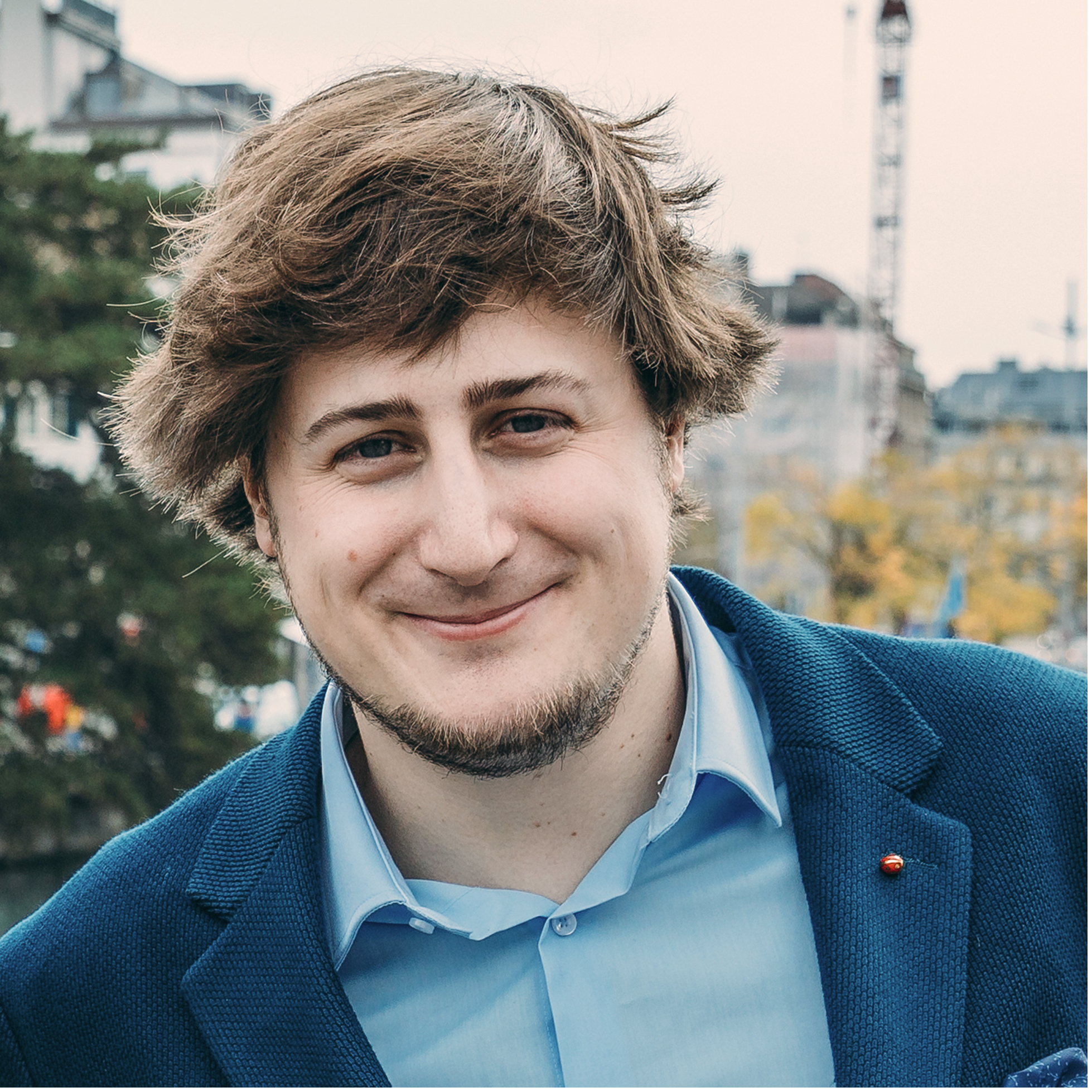 When designing complex systems, we need to consider multiple trade-offs at various abstraction levels and scales, and choices of single components need to be studied jointly. For instance, the design of future mobility solutions (e.g., autonomous vehicles, micromobility) and the design of the mobility systems they enable are closely coupled. Indeed, knowledge about the intended service of novel mobility solutions would impact their design and deployment process, whilst insights about their technological development could significantly affect transportation management policies. Optimally co-designing sociotechnical systems is a complex task for at least two reasons. On one hand, the co-design of interconnected systems (e.g., large networks of cyber-physical systems) involves the simultaneous choice of components arising from heterogeneous natures (e.g., hardware vs. software parts) and fields, while satisfying systemic constraints and accounting for multiple objectives. On the other hand, components are connected via collaborative and conflicting interactions between different stakeholders (e.g., within an intermodal mobility system). In this talk, I will present a framework to co-design complex systems, leveraging a monotone theory of co-design and tools from game theory. The framework will be instantiated in the task of designing future mobility systems, all the way from the policies that a city can design, to the autonomy of vehicles part of an autonomous mobility-on-demand service. Through various case studies, I will show how the proposed approaches allow one to efficiently answer heterogeneous questions, unifying different modeling techniques and promoting interdisciplinarity, modularity, and compositionality. I will then discuss open challenges for compositional systems design optimization, and present my agenda to tackle them.
When designing complex systems, we need to consider multiple trade-offs at various abstraction levels and scales, and choices of single components need to be studied jointly. For instance, the design of future mobility solutions (e.g., autonomous vehicles, micromobility) and the design of the mobility systems they enable are closely coupled. Indeed, knowledge about the intended service of novel mobility solutions would impact their design and deployment process, whilst insights about their technological development could significantly affect transportation management policies. Optimally co-designing sociotechnical systems is a complex task for at least two reasons. On one hand, the co-design of interconnected systems (e.g., large networks of cyber-physical systems) involves the simultaneous choice of components arising from heterogeneous natures (e.g., hardware vs. software parts) and fields, while satisfying systemic constraints and accounting for multiple objectives. On the other hand, components are connected via collaborative and conflicting interactions between different stakeholders (e.g., within an intermodal mobility system). In this talk, I will present a framework to co-design complex systems, leveraging a monotone theory of co-design and tools from game theory. The framework will be instantiated in the task of designing future mobility systems, all the way from the policies that a city can design, to the autonomy of vehicles part of an autonomous mobility-on-demand service. Through various case studies, I will show how the proposed approaches allow one to efficiently answer heterogeneous questions, unifying different modeling techniques and promoting interdisciplinarity, modularity, and compositionality. I will then discuss open challenges for compositional systems design optimization, and present my agenda to tackle them.
-
- Date: September 26, 2023
Where: Virtual
MERL Contact: Anoop Cherian
Research Areas: Artificial Intelligence, Computer Vision, Machine Learning
Brief - Anoop Cherian, a Senior Principal Research Scientist in the Computer Vision team at MERL, gave a podcast interview with award-winning journalist, Deborah Yao. Deborah is the editor of AI Business -- a leading content platform for artificial intelligence and its applications in the real world, delivering its readers up-to-the-minute insights into how AI technologies are currently affecting the global economy and society. The podcast was based on the recent research that Anoop and his colleagues did at MERL with his collaborators at MIT; this research attempts to objectively answer the pertinent question: are current deep neural networks smarter than second graders? The podcast discusses shortcomings in the recent artificial general intelligence systems with regard to their capabilities for knowledge abstraction, learning, and generalization, which are brought out by this research.
-
- Date & Time: Tuesday, November 7, 2023; 12:00 PM
Speaker: Flavio Calmon, Harvard University
MERL Host: Ye Wang
Research Areas: Artificial Intelligence, Machine Learning
Abstract 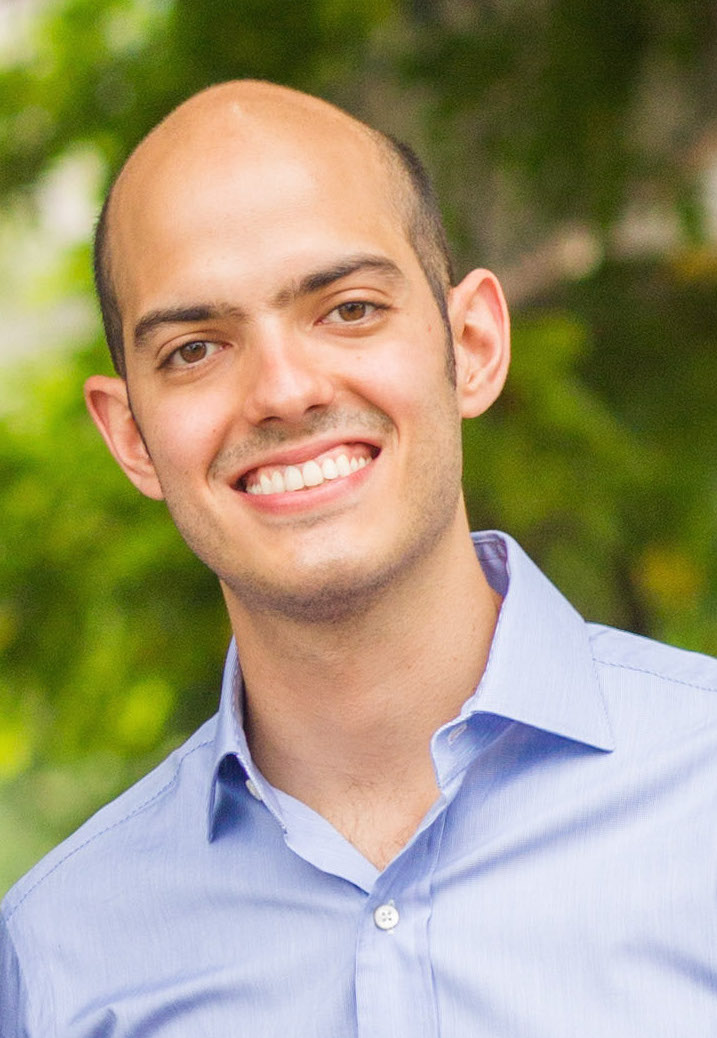 This talk reviews the concept of predictive multiplicity in machine learning. Predictive multiplicity arises when different classifiers achieve similar average performance for a specific learning task yet produce conflicting predictions for individual samples. We discuss a metric called “Rashomon Capacity” for quantifying predictive multiplicity in multi-class classification. We also present recent findings on the multiplicity cost of differentially private training methods and group fairness interventions in machine learning.
This talk reviews the concept of predictive multiplicity in machine learning. Predictive multiplicity arises when different classifiers achieve similar average performance for a specific learning task yet produce conflicting predictions for individual samples. We discuss a metric called “Rashomon Capacity” for quantifying predictive multiplicity in multi-class classification. We also present recent findings on the multiplicity cost of differentially private training methods and group fairness interventions in machine learning.
This talk is based on work published at ICML'20, NeurIPS'22, ACM FAccT'23, and NeurIPS'23.
-
- Date: November 1, 2023
MERL Contact: Diego Romeres
Research Areas: Artificial Intelligence, Machine Learning, Robotics
Brief - Principal Research Scientist and Team Leader Diego Romeres gave an invited talk with title 'Applications of Machine Learning to Robotics' in the Machine Learning graduate course at Bentley University. The presentation focused mainly on Reinforcement Learning research applied to robotics. The audience consisted mostly of Master’s in Business Analytics (MSBA) students and students in the MBA w/ Business Analytics Concentration program.
-
- Date & Time: Tuesday, October 31, 2023; 2:00 PM
Speaker: Tanmay Gupta, Allen Institute for Artificial Intelligence
MERL Host: Moitreya Chatterjee
Research Areas: Artificial Intelligence, Computer Vision, Machine Learning
Abstract  Building General Purpose Vision Systems (GPVs) that can perform a huge variety of tasks has been a long-standing goal for the computer vision community. However, end-to-end training of these systems to handle different modalities and tasks has proven to be extremely challenging. In this talk, I will describe a lucrative neuro-symbolic alternative to the common end-to-end learning paradigm called Visual Programming. Visual Programming is a general framework that leverages the code-generation abilities of LLMs, existing neural models, and non-differentiable programs to enable powerful applications. Some of these applications continue to remain elusive for the current generation of end-to-end trained GPVs.
Building General Purpose Vision Systems (GPVs) that can perform a huge variety of tasks has been a long-standing goal for the computer vision community. However, end-to-end training of these systems to handle different modalities and tasks has proven to be extremely challenging. In this talk, I will describe a lucrative neuro-symbolic alternative to the common end-to-end learning paradigm called Visual Programming. Visual Programming is a general framework that leverages the code-generation abilities of LLMs, existing neural models, and non-differentiable programs to enable powerful applications. Some of these applications continue to remain elusive for the current generation of end-to-end trained GPVs.
-
- Date & Time: Wednesday, November 15, 2023; 3:00-3:40pm (EST)
Location: Virtual Event
Speaker: Prof. Yuejie Chi, Carnegie Mellon University
MERL Contact: Bingnan Wang Brief - MERL is excited to announce the featured keynote speaker for our Virtual Open House 2023: Prof. Yuejie Chi from Carnegie Mellon University.
Our virtual open house this year will take place on November 15, 2023, 1:00pm - 5:30pm (EST). Prof. Chi’s talk is scheduled for 3:00-3:40pm (EST). For details and agenda of the event, please visit: https://merl.com/events/voh23
Join us to learn more about who we are, what we do, and discuss our internship, post-doc, and full-time employment opportunities. To register, go to: https://mailchi.mp/merl/voh23
Title: Sample Complexity of Q-learning: from Single-agent to Federated Learning
Abstract: Q-learning, which seeks to learn the optimal Q-function of a Markov decision process (MDP) in a model-free fashion, lies at the heart of reinforcement learning practices. However, theoretical understandings on its non-asymptotic sample complexity remain unsatisfactory, despite significant recent efforts. In this talk, we first show a tight sample complexity bound of Q-learning in the single-agent setting, together with a matching lower bound to establish its minimax sub-optimality. We then show how federated versions of Q-learning allow collaborative learning using data collected by multiple agents without central sharing, where an importance averaging scheme is introduced to unveil the blessing of heterogeneity.
-
- Date: January 23, 2023 - November 4, 2023
Where: International Symposium of Music Information Retrieval (ISMR)
MERL Contacts: Jonathan Le Roux; Gordon Wichern
Research Areas: Artificial Intelligence, Machine Learning, Speech & Audio
Brief - MERL Speech & Audio team members Gordon Wichern and Jonathan Le Roux co-organized the 2023 Sound Demixing Challenge along with researchers from Sony, Moises AI, Audioshake, and Meta.
The SDX2023 Challenge was hosted on the AI Crowd platform and had a prize pool of $42,000 distributed to the winning teams across two tracks: Music Demixing and Cinematic Sound Demixing. A unique aspect of this challenge was the ability to test the audio source separation models developed by challenge participants on non-public songs from Sony Music Entertainment Japan for the music demixing track, and movie soundtracks from Sony Pictures for the cinematic sound demixing track. The challenge ran from January 23rd to May 1st, 2023, and had 884 participants distributed across 68 teams submitting 2828 source separation models. The winners will be announced at the SDX2023 Workshop, which will take place as a satellite event at the International Symposium of Music Information Retrieval (ISMR) in Milan, Italy on November 4, 2023.
MERL’s contribution to SDX2023 focused mainly on the cinematic demixing track. In addition to sponsoring the prizes awarded to the winning teams for that track, the baseline system and initial training data were MERL’s Cocktail Fork separation model and Divide and Remaster dataset, respectively. MERL researchers also contributed to a Town Hall kicking off the challenge, co-authored a scientific paper describing the challenge outcomes, and co-organized the SDX2023 Workshop.
-
- Date & Time: Wednesday, November 15, 2023; 1:00 - 5:30 EST
Location: Virtual Event
MERL Contact: Bingnan Wang Brief - Join us for MERL's Virtual Open House (VOH) 2023 on November 15th. Live sessions will be held from 1:00-5:30pm EST, including an overview of recent activities by our research groups, a featured guest speaker and live interaction with our research staff through the Gather platform. Registered attendees will be able to browse our virtual booths at their convenience and connect with our research staff to learn about engagement opportunities, including internship/post-doc openings as well as visiting faculty positions.
For agenda and details of the event: https://www.merl.com/events/voh23
To register for the VOH, go to:
https://mailchi.mp/merl/voh23
-
- Date & Time: Tuesday, October 10, 2023; 1:00 PM
Speaker: Shaoshuai Mou, Purdue University
MERL Host: Yebin Wang
Research Areas: Control, Dynamical Systems, Robotics
Abstract 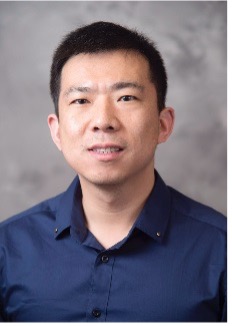 Inverse Optimal Control (IOC) aims to achieve an objective function corresponding to a certain task from an expert robot driven by optimal control, which has become a powerful tool in many applications in robotics. We will present our recent solutions to IOC based on incomplete observations of systems' trajectories, which enables an autonomous system to “sense-and-adapt", i.e., incrementally improving the learning of objective functions as new data arrives. This also leads to a distributed algorithm to solve IOC in multi-agent systems, in which each agent can only access part of the overall trajectory of an optimal control system and cannot solve IOC by itself. This is perhaps the first distributed method to IOC. Applications of IOC into human prediction will also be given.
Inverse Optimal Control (IOC) aims to achieve an objective function corresponding to a certain task from an expert robot driven by optimal control, which has become a powerful tool in many applications in robotics. We will present our recent solutions to IOC based on incomplete observations of systems' trajectories, which enables an autonomous system to “sense-and-adapt", i.e., incrementally improving the learning of objective functions as new data arrives. This also leads to a distributed algorithm to solve IOC in multi-agent systems, in which each agent can only access part of the overall trajectory of an optimal control system and cannot solve IOC by itself. This is perhaps the first distributed method to IOC. Applications of IOC into human prediction will also be given.
-
 The explosive growth of machine learning and data-driven methodologies have revolutionized numerous fields. Yet, translating these successes to the domain of dynamical, physical systems remains a significant challenge, hindered by the complex and often unpredictable nature of such environments. Closing the loop from data to actions in these systems faces many difficulties, stemming from the need for sample efficiency and computational feasibility amidst intricate dynamics, along with many other requirements such as verifiability, robustness, and safety. In this talk, we bridge this gap by introducing innovative approaches that harness representation-based methods, domain knowledge, and the physical structures of systems. We present a comprehensive framework that integrates these components to develop reinforcement learning and control strategies that are not only tailored for the complexities of physical systems but also achieve efficiency, safety, and robustness with provable performance.
The explosive growth of machine learning and data-driven methodologies have revolutionized numerous fields. Yet, translating these successes to the domain of dynamical, physical systems remains a significant challenge, hindered by the complex and often unpredictable nature of such environments. Closing the loop from data to actions in these systems faces many difficulties, stemming from the need for sample efficiency and computational feasibility amidst intricate dynamics, along with many other requirements such as verifiability, robustness, and safety. In this talk, we bridge this gap by introducing innovative approaches that harness representation-based methods, domain knowledge, and the physical structures of systems. We present a comprehensive framework that integrates these components to develop reinforcement learning and control strategies that are not only tailored for the complexities of physical systems but also achieve efficiency, safety, and robustness with provable performance. This talk will cover a new generation of technologies that can sense, connect, and perceive the physical world in unprecedented ways. These technologies can uncover hidden worlds around us, promising transformative impact on areas spanning climate change monitoring, ocean mapping, healthcare, food security, supply chain, and even extraterrestrial exploration.
This talk will cover a new generation of technologies that can sense, connect, and perceive the physical world in unprecedented ways. These technologies can uncover hidden worlds around us, promising transformative impact on areas spanning climate change monitoring, ocean mapping, healthcare, food security, supply chain, and even extraterrestrial exploration.  Recent work claims that large language models display emergent abilities, abilities not present in smaller-scale models that are present in larger-scale models. What makes emergent abilities intriguing is two-fold: their sharpness, transitioning seemingly instantaneously from not present to present, and their unpredictability, appearing at seemingly unforeseeable model scales. Here, we present an alternative explanation for emergent abilities: that for a particular task and model family, when analyzing fixed model outputs, emergent abilities appear due to the researcher's choice of metric rather than due to fundamental changes in model behavior with scale. Specifically, nonlinear or discontinuous metrics produce apparent emergent abilities, whereas linear or continuous metrics produce smooth, continuous predictable changes in model performance. We present our alternative explanation in a simple mathematical model. Via the presented analyses, we provide evidence that alleged emergent abilities evaporate with different metrics or with better statistics, and may not be a fundamental property of scaling AI models.
Recent work claims that large language models display emergent abilities, abilities not present in smaller-scale models that are present in larger-scale models. What makes emergent abilities intriguing is two-fold: their sharpness, transitioning seemingly instantaneously from not present to present, and their unpredictability, appearing at seemingly unforeseeable model scales. Here, we present an alternative explanation for emergent abilities: that for a particular task and model family, when analyzing fixed model outputs, emergent abilities appear due to the researcher's choice of metric rather than due to fundamental changes in model behavior with scale. Specifically, nonlinear or discontinuous metrics produce apparent emergent abilities, whereas linear or continuous metrics produce smooth, continuous predictable changes in model performance. We present our alternative explanation in a simple mathematical model. Via the presented analyses, we provide evidence that alleged emergent abilities evaporate with different metrics or with better statistics, and may not be a fundamental property of scaling AI models. While robots have been successfully deployed in factory floors and warehouses, there has been limited progress in having them perform physical tasks with people at home and in the workplace. I aim to bridge the gap between their current performance in human environments and what robots are capable of doing, by making human-robot interactions efficient and robust.
While robots have been successfully deployed in factory floors and warehouses, there has been limited progress in having them perform physical tasks with people at home and in the workplace. I aim to bridge the gap between their current performance in human environments and what robots are capable of doing, by making human-robot interactions efficient and robust.  I will survey a current, heated debate in the AI research community on whether large pre-trained language models can be said to "understand" language -- and the physical and social situations language encodes -- in any important sense. I will describe arguments that have been made for and against such understanding, and, more generally, will discuss what methods can be used to fairly evaluate understanding and intelligence in AI systems. I will conclude with key questions for the broader sciences of intelligence that have arisen in light of these discussions.
I will survey a current, heated debate in the AI research community on whether large pre-trained language models can be said to "understand" language -- and the physical and social situations language encodes -- in any important sense. I will describe arguments that have been made for and against such understanding, and, more generally, will discuss what methods can be used to fairly evaluate understanding and intelligence in AI systems. I will conclude with key questions for the broader sciences of intelligence that have arisen in light of these discussions. Advances in machine learning have led to powerful models for audio and language, proficient in tasks like speech recognition and fluent language generation. Beyond their immense utility in engineering applications, these models offer valuable tools for cognitive science and neuroscience. In this talk, I will demonstrate how these artificial neural network models can be used to understand how the human brain processes language. The first part of the talk will cover how audio neural networks serve as computational accounts for brain activity in the auditory cortex. The second part will focus on the use of large language models, such as those in the GPT family, to non-invasively control brain activity in the human language system.
Advances in machine learning have led to powerful models for audio and language, proficient in tasks like speech recognition and fluent language generation. Beyond their immense utility in engineering applications, these models offer valuable tools for cognitive science and neuroscience. In this talk, I will demonstrate how these artificial neural network models can be used to understand how the human brain processes language. The first part of the talk will cover how audio neural networks serve as computational accounts for brain activity in the auditory cortex. The second part will focus on the use of large language models, such as those in the GPT family, to non-invasively control brain activity in the human language system. Imaging in low light settings is extremely challenging due to low photon counts, both in photography and in microscopy. In photography, imaging under low light, high gain settings often results in highly structured, non-Gaussian sensor noise that’s hard to characterize or denoise. In this talk, we address this by developing a GAN-tuned physics-based noise model to more accurately represent camera noise at the lowest light, and highest gain settings. Using this noise model, we train a video denoiser using synthetic data and demonstrate photorealistic videography at starlight (submillilux levels of illumination) for the first time.
Imaging in low light settings is extremely challenging due to low photon counts, both in photography and in microscopy. In photography, imaging under low light, high gain settings often results in highly structured, non-Gaussian sensor noise that’s hard to characterize or denoise. In this talk, we address this by developing a GAN-tuned physics-based noise model to more accurately represent camera noise at the lowest light, and highest gain settings. Using this noise model, we train a video denoiser using synthetic data and demonstrate photorealistic videography at starlight (submillilux levels of illumination) for the first time.  When designing complex systems, we need to consider multiple trade-offs at various abstraction levels and scales, and choices of single components need to be studied jointly. For instance, the design of future mobility solutions (e.g., autonomous vehicles, micromobility) and the design of the mobility systems they enable are closely coupled. Indeed, knowledge about the intended service of novel mobility solutions would impact their design and deployment process, whilst insights about their technological development could significantly affect transportation management policies. Optimally co-designing sociotechnical systems is a complex task for at least two reasons. On one hand, the co-design of interconnected systems (e.g., large networks of cyber-physical systems) involves the simultaneous choice of components arising from heterogeneous natures (e.g., hardware vs. software parts) and fields, while satisfying systemic constraints and accounting for multiple objectives. On the other hand, components are connected via collaborative and conflicting interactions between different stakeholders (e.g., within an intermodal mobility system). In this talk, I will present a framework to co-design complex systems, leveraging a monotone theory of co-design and tools from game theory. The framework will be instantiated in the task of designing future mobility systems, all the way from the policies that a city can design, to the autonomy of vehicles part of an autonomous mobility-on-demand service. Through various case studies, I will show how the proposed approaches allow one to efficiently answer heterogeneous questions, unifying different modeling techniques and promoting interdisciplinarity, modularity, and compositionality. I will then discuss open challenges for compositional systems design optimization, and present my agenda to tackle them.
When designing complex systems, we need to consider multiple trade-offs at various abstraction levels and scales, and choices of single components need to be studied jointly. For instance, the design of future mobility solutions (e.g., autonomous vehicles, micromobility) and the design of the mobility systems they enable are closely coupled. Indeed, knowledge about the intended service of novel mobility solutions would impact their design and deployment process, whilst insights about their technological development could significantly affect transportation management policies. Optimally co-designing sociotechnical systems is a complex task for at least two reasons. On one hand, the co-design of interconnected systems (e.g., large networks of cyber-physical systems) involves the simultaneous choice of components arising from heterogeneous natures (e.g., hardware vs. software parts) and fields, while satisfying systemic constraints and accounting for multiple objectives. On the other hand, components are connected via collaborative and conflicting interactions between different stakeholders (e.g., within an intermodal mobility system). In this talk, I will present a framework to co-design complex systems, leveraging a monotone theory of co-design and tools from game theory. The framework will be instantiated in the task of designing future mobility systems, all the way from the policies that a city can design, to the autonomy of vehicles part of an autonomous mobility-on-demand service. Through various case studies, I will show how the proposed approaches allow one to efficiently answer heterogeneous questions, unifying different modeling techniques and promoting interdisciplinarity, modularity, and compositionality. I will then discuss open challenges for compositional systems design optimization, and present my agenda to tackle them. This talk reviews the concept of predictive multiplicity in machine learning. Predictive multiplicity arises when different classifiers achieve similar average performance for a specific learning task yet produce conflicting predictions for individual samples. We discuss a metric called “Rashomon Capacity” for quantifying predictive multiplicity in multi-class classification. We also present recent findings on the multiplicity cost of differentially private training methods and group fairness interventions in machine learning.
This talk reviews the concept of predictive multiplicity in machine learning. Predictive multiplicity arises when different classifiers achieve similar average performance for a specific learning task yet produce conflicting predictions for individual samples. We discuss a metric called “Rashomon Capacity” for quantifying predictive multiplicity in multi-class classification. We also present recent findings on the multiplicity cost of differentially private training methods and group fairness interventions in machine learning. Building General Purpose Vision Systems (GPVs) that can perform a huge variety of tasks has been a long-standing goal for the computer vision community. However, end-to-end training of these systems to handle different modalities and tasks has proven to be extremely challenging. In this talk, I will describe a lucrative neuro-symbolic alternative to the common end-to-end learning paradigm called Visual Programming. Visual Programming is a general framework that leverages the code-generation abilities of LLMs, existing neural models, and non-differentiable programs to enable powerful applications. Some of these applications continue to remain elusive for the current generation of end-to-end trained GPVs.
Building General Purpose Vision Systems (GPVs) that can perform a huge variety of tasks has been a long-standing goal for the computer vision community. However, end-to-end training of these systems to handle different modalities and tasks has proven to be extremely challenging. In this talk, I will describe a lucrative neuro-symbolic alternative to the common end-to-end learning paradigm called Visual Programming. Visual Programming is a general framework that leverages the code-generation abilities of LLMs, existing neural models, and non-differentiable programs to enable powerful applications. Some of these applications continue to remain elusive for the current generation of end-to-end trained GPVs. Inverse Optimal Control (IOC) aims to achieve an objective function corresponding to a certain task from an expert robot driven by optimal control, which has become a powerful tool in many applications in robotics. We will present our recent solutions to IOC based on incomplete observations of systems' trajectories, which enables an autonomous system to “sense-and-adapt", i.e., incrementally improving the learning of objective functions as new data arrives. This also leads to a distributed algorithm to solve IOC in multi-agent systems, in which each agent can only access part of the overall trajectory of an optimal control system and cannot solve IOC by itself. This is perhaps the first distributed method to IOC. Applications of IOC into human prediction will also be given.
Inverse Optimal Control (IOC) aims to achieve an objective function corresponding to a certain task from an expert robot driven by optimal control, which has become a powerful tool in many applications in robotics. We will present our recent solutions to IOC based on incomplete observations of systems' trajectories, which enables an autonomous system to “sense-and-adapt", i.e., incrementally improving the learning of objective functions as new data arrives. This also leads to a distributed algorithm to solve IOC in multi-agent systems, in which each agent can only access part of the overall trajectory of an optimal control system and cannot solve IOC by itself. This is perhaps the first distributed method to IOC. Applications of IOC into human prediction will also be given.